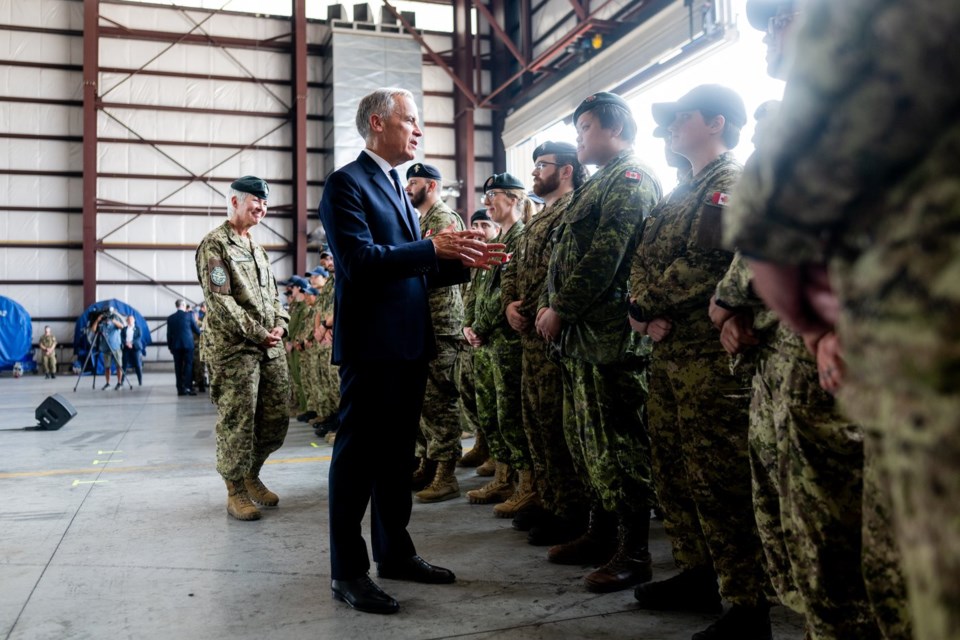TRENTON, ONT. — Ottawa is hiking entry-level pay for Canadian Armed Forces privates by 20 per cent for the regular force and 13 per cent for reservists, Prime Minister Mark Carney said at CFB Trenton on Friday.
That means the annual salary for a new recruit will go from $43,368 to $52,044.
Other military members will also receive pay raises, with smaller increases for higher ranks — part of a broader plan to boost recruitment and operational readiness. The new pay hikes will be retroactive to April 1 of this year.
"Canada has not seen something like this this millennium, and hasn't seen it since the late 1990s, so it's a generational shift and we're proud of it," Carney told reporters at a news conference in a hangar at the airbase.
Carney also said Ottawa will introduce "additional supports in the coming months for members preparing for combat and high-risk training, so they are paid fairly."
While Defence Minister David McGuinty promised a 20 per cent military pay hike earlier this summer, Carney's announcement only delivers a pay hike to one level of the military, based on rank.
In a technical briefing, federal bureaucrats told reporters that the new compensation package is expected to cost around $2 billion annually and is part of a planned $9.3 billion budget boost this year to get to NATO’s defence spending benchmark of two per cent of GDP.
Ottawa is also creating new military allowances and enhancing existing ones in a bid to help retain personnel and drive up recruitment in a competitive job market.
Those allowances include $50,000 in bonuses for people entering and working in what the government calls "stressed occupations” — critical jobs in sectors that are seeing too many vacancies.
Staffing levels in 53 of 116 critical occupations, which include vehicle and maritime technicians, are now below 75 per cent.
Chief of the Defence Staff Gen. Jennie Carignan said the recruitment drive is gaining momentum but retention is a more complex problem.
"In some trades we have challenges, which is why today's package aims at targeting those specific, technical trades where we need more people to come in," she said.
She said the private sector is competing with the military for people in specialized trades, such as signal operators and maritime technicians — which is why the government is offering bonuses to try to draw more people into those jobs.
This report by The Canadian Press was first published Aug. 8, 2025.
Kyle Duggan, The Canadian Press



